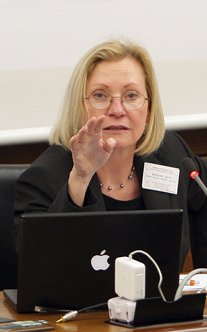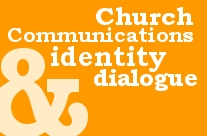

All the participants in the Seminar are invited to submit Presentations.
The Presentations can follow the traditional pattern of an academic paper or present experiences, projects and initiatives considered useful for the communications offices of the Church. In both cases, the matters dealt with in the presentations should be related to the theme of the Seminar.
The title and a brief summary (20-30 lines) should be submitted by March 26th, 2010 . The submission should include the name of the author, academic/professional affiliations, and the author's email address. The submission should be sent to the Secretary of the Conference via email ( ).
The official Languages of the Seminar are Italian, English, Spanish, French.
If, within a week of submission, a presenter has not been informed to the contrary, the submission should be considered accepted. If a written confirmation is needed, please request one from the Conference Secretary. The accepted Presentations, with their abstracts, will be posted online in the section "Papers".
If a Presentation will require technical assistance (audio, visual, CD-ROM, Power-point, etc.), please indicate the precise requirements in the submission of the paper to the Secretary of the Conference.
Each Presentation should last 30 minutes, with roughly 20 minutes for the presentation and 10 minutes for questions.
The distribution and the schedule of the Presentations will be announced online in the section "Papers".
Conditions for the publication of the presentations:
A selection of the papers presented at the conference will be published. In order to be considered for inclusion in the published proceedings, the text will have to fulfill the following requirements:
The complete text of a Paper (notes included) should be no longer than 20,000 characters (spaces included).
The final date for submission of the complete text is May 30th, 2010.
The organizing committee requests that papers be submitted in electronic format (either by email or on CD).
The editing process will be simplified if bibliographical references follow the examples below:
- Stanley CAVELL, Pursuits of Happiness: The Hollywood Comedy of Remarriage, Harvard University Press, Cambridge, Massachusetts 1981.
- David MAMET, "El arte como profesión de ayuda", en La ciudad de las patrañas, Debate, Madrid 1997, pp.100-105.
- Robert SPAEMANN, "L'unità del mito. Culto ed ethos come fondamento della cultura", en Il Nuovo Aeropago, 3-4 (1991), pp.37-41. For the quote, p.37.
- Maria SAN FILIPPO, "Amores Perros", March 2001, Senses of Cinema, 4.6.03.